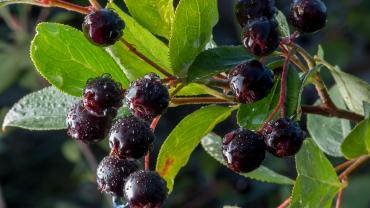
Quercetin is a dietary flavonoid that promotes a healthy inflammatory response and redox balance, and it supports immune health.* Quercetin is one of the most abundant polyphenols in plants and has been investigated for a variety of potential health benefits, especially regarding oxidative stress and inflammation. For example, a systematic review on quercetin treatment for sepsis determined that it attenuated inflammation and oxidative stress. Another systematic review found that in subjects with chronic diseases, supplementation with quercetin led to a significant reduction in C-reactive protein levels. Research has also examined the potential actions that quercetin enacts on the body to support antioxidant defense and immune function.
One potential mechanism behind the effects of quercetin on the body may be its activation of the nuclear factor-2 erythroid-related factor-2 (Nrf2) pathway. Nrf2 is an integral part of the body’s antioxidant defense. Nrf2 is a transcription factor that codes for hundreds of genes involved in key body processes, including redox balance, inflammation, and detoxification. It is also the main sensor of oxidative stress and modulator of the response to support the mitigation of any potential damage from excess free radicals. Kelch-like ECH-associated protein 1 (Keap1) regulates Nrf2 by keeping it bound when there is no oxidative stress and releasing it at times of oxidative stress. Certain actions and compounds may work on Keap1 to activate Nrf2. There are additional pathways that can be affected to turn on Nrf2 and activate the body’s antioxidant defense, which includes glutathione-related enzymes.
Quercetin may promote the nuclear translocation and phosphorylation of Nrf2, allowing it to activate the transcription of key genes and downstream activities. Quercetin may increase Nrf2 phosphorylation, mediated by protein kinase C (PKC) activation and/or glycogen synthase kinase-3 beta inhibition through p38 mitogen-activated protein kinase (MAPK) inhibition, according to one cell study. PKC is a known activator of Nrf2 phosphorylation and signaling, whereas the p38 kinase pathway is a negative regulator of Nrf2. In the study, the cells treated with quercetin had enhanced activity of the Nrf2 pathway, as demonstrated by increased Nrf2 levels and elevated levels of gamma-glutamylcysteine synthase and glyoxalase 1, a key phase II detoxification enzyme. Treating the cells with inhibitors of PKC or p38 MAPK altered the effects of quercetin, demonstrating these kinase pathways are potentially involved in quercetin’s association with Nrf2. Likewise, another cell study found that quercetin led to increased Nrf2 activity through quercetin’s activity on p38 MAPK.
Many dietary and lifestyle factors support the body’s antioxidant defense and promote a healthy inflammatory response.* Dietary bioflavonoids such as quercetin have been investigated to determine the health-promoting actions they may impart as part of a healthy diet. There is promising research into the potential of quercetin to act as an activator of the Nrf2 pathway. Many plant foods contain quercetin, and some individuals may find that supplementing with this phytonutrient provides additional support for redox balance.*
By Kendra Whitmire, MS, CNS